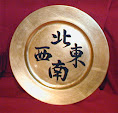About Me
19 March 2025
Nu RuneQuest − Habemus nomen!
28 February 2025
Nu Tunnels & Trolls
13 February 2025
Mike Mearls About the New Rules
10 February 2025
Nu RuneQuest
New RuneQuest?The cat is out of the bag! Mike Mearls, Jason Durall, and I have been secretly working on refining and streamlining the RuneQuest rules for the better part of a year! The rules are in final playtest (and any playtesters present please do not comment on them publicly until we give the word). And man we are EXCITED! Loads more info very soon, so watch this space.But sharp eyed folk might want to carefully review some of my posts over the last year!
12 January 2025
Tunnels & Trolls Back in 2025?
Remember? Two years ago, Rebellion Unplugged purchased the Tunnels & Trolls licence from Webbed Sphere who were idly sitting on it.
We haven’t heard much since; however, a few days ago, Rebellion Unplugged posted the following on Bluesky:
That sounds rather... bombastic, but here’s hoping.
28 October 2024
Cthulhubane
I have pondered this and jotted down a few ideas.
(post updated on 1/1/2025 with input from ian.fenrisgames)
DAGONBANE
Your Investigator
Attributes
Same as Dragonbane; add a new attribute, EDU (2D6+6).
SAN is replaced with RESolve. Starting RES is equal to the average of WIL, INT and EDU. Whenever a scenario calls for a SAN roll, make an EDU roll instead. Success: nothing happens; failure: lose 1 RES.
Professions
Athletic
Key attribute AGL
Skills: Acrobatics, Awareness, Bluffing, Brawling, Evade, Swimming
Heroic ability: Veteran
Sample occupations: acrobat, boxer, gangster, soldier…
Charismatic
Key attribute CHA
Skills: Acrobatics, Bartering, Bluffing, Languages [Living], Performance, Persuasion
Heroic ability: Insight
Sample occupations: actor, clergyman, prostitute, solicitor…
Cultured
Key attribute EDU
Skills: Awareness, Etiquette, Evade, First Aid, Languages [Dead], Spot Hidden
Heroic ability: Intuition
Sample occupations: archaeologist, author, book dealer, librarian, occultist, humanities professor…
Investigative
Key attribute AGL
Skills: Acrobatics, Awareness, Bluffing, Brawling, Sneaking, Streetwise
Heroic ability: Word on the street
Sample occupations: journalist, police detective, private investigator…
Scientific
Key attribute INT
Skills: Awareness, Evade, First Aid, Languages [Living], Sneaking, Spot Hidden
Heroic ability: Practical Science
Sample occupations: laboratory assistant, physician, psychiatrist, science teacher…
Skilled
Key attribute STR
Skills: Awareness, Brawling, Sleight of Hand, Spot Hidden, any skill based on the investigator’s occupation (Drive Auto, Elec. Repair, Mech. Repair, Pilot Aircraft…)
Heroic ability: DIY
Sample occupations: driver, mechanic, pilot…
List of Core Skills
Acrobatics
Awareness
Bartering
Bluffing
Drive Auto (like ‘Riding’ but for automobiles)
Elec. Repair (like ‘Crafting’ but for electrical gear)
Etiquette (like ‘Bushcraft’ but in the jungle of high society)
Evade
First Aid (‘Healing’ renamed)
General Knowledge (new skill, EDU)
Languages [Dead]
Languages [Living]
Mech. Repair (like ‘Crafting’ but for mechanical gear)
Occult (like ‘Myths & Legends’ but based on EDU)
Performance
Persuasion
Pilot Aircraft (new skill, INT)
Pilot Boat (‘Seamanship’ renamed)
Riding
Sleight of Hand
Sneaking
Spot Hidden
Streetwise (like ‘Bushcraft’ but in the urban jungle)
Swimming
Weapon Skills
Brawling (STR)
Firearms (AGL)
Mêlée weapons, ancient (STR)
Missile weapons, ancient (AGL)
List of Heroic Abilities
Catlike
Contortionist
Defensive
Disguise
DIY (works like ‘Master Blacksmith/Carpenter/Tanner’, but is based on the investigator’s occupation, Requirement: Elec. Repair/Mech. Repair 12)
Eagle Eye
Fast Footwork
Fast Healer
Fearless
Focused
Guardian
Insight
Intuition
Iron Fist
Iron Grip
Lightning Fast
Magic Talent – you can cast a single mythos spell without incurring the associated RES loss (TBD). This heroic ability must be selected for each such spell.
Marksman (new heroic ability: boon on firearms, Requirement: Firearms 12, WP 3)
Monster Hunter (only available in pulp games)
Musician
Mythos Creature Slayer (‘Dragonslayer’ renamed, only available in pulp games)
Practical Science (works like ‘Master Blacksmith/Carpenter/Tanner’, but is based on the investigator’s speciality, Chemistry, Medicine, Physics…)
Relic Hunter (‘Treasure Hunter’ renamed, only available in pulp games)
Robust
Sea Legs
Veteran
Word on the street (like ‘Intuition’, but for street wisdom-based decisions, Requirement: Streetwise 12)
27 September 2024
Dragonbane Readthrough, Part Eight
Nothing really particular here, but a meaty selection of useful gaming advice:
Travelling
You get travelling times, including the effects of a forced march on the player characters; getting lost; a mishaps table for wilderness adventures (which is much more fun than wandering monsters), etc.
Foraging
To my taste there is waaaay too much detail on foraging in the wilderness and on the effects of not having enough food 🥱, but I understand this may sound ‘fun’ to other players (after all, why should combat be the only area where frp games rules are über detailed?)
GM Advice
This section is both classic and useful. We old timers may safely ignore it, but inexperienced GMs will find helpful advice. I particularly like the paragraph about managing mooks. In a stat-heavy game such as Dragonbane it can be tedious to keep track of fully-statted ‘low-level’ NPCs, and you get plenty of advice here as how to reduce bookkeeping in this area.
Creating Adventures
On top of useful advice about the kind of challenges the PCs may encounter, and when and where, there are a few random tables reminiscent of my own adventure generator 🙂
Monsters are such a central and peculiar part of Dragonbane, what with their automatic and diverse attacks, each with their own tables. Therefore I am slightly disappointed that there aren’t any guidelines for creating your own Dragonbane monsters.









